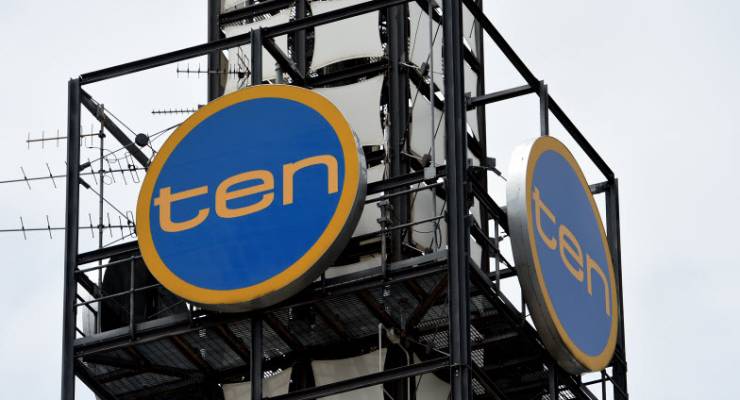
We have been reporting for some time the US experience of company tax cuts, which regular readers can now recite by rote — share buybacks, etc, etc. But what if we had some contemporary Australian experience?
Fortunately, the government has handed one industry a big tax windfall in recent years, so we can check out the extra investment and wages growth that has flowed from it. Since 2010, both Labor and the Coalition have handed the commercial television networks what will total millions of dollars via cuts to licence fees. Labor halved the licence fees, and they’ve since been cut back and then abolished altogether by the Coalition (the fees were cut a further quarter in the 2016-17 budget; now they’re gone altogether, replaced by the spectrum fee). The total net cost since 2010 has been several hundred million dollars; even the abolition of the heavily reduced fee last year cost the budget $400 million.
The 2016-17 cuts meant Network Ten’s fees fell to around $23 million, down from about $30 million, Nine’s fees fell from about $58 million to $43 million, and Seven’s from $77 million to about $58 million. These are fractions of what they used to pay before Stephen Conroy began cutting the fee. And now all they have to pay is a few million a year for access to spectrum.
What’s happened as a result? Since then, Ten has gone bust, losing hundreds of millions of dollars for investors of all types, including the Murdoch family’s pay TV business, Foxtel. Seven West Media is struggling under a huge debt pile — both its own and its major shareholder, Kerry Stokes. Regional networks, Prime (under the same pressures as Seven West), Southern Cross, facing pressure on ad revenues and profits) and WIN (ditto) are all struggling. Only Nine is looking OK, having come through a near-death experience a decade ago.
When the abolition decision was announced in the 2017-18 budget, Free TV Australia praised the decision, with chairman Harold Mitchell saying it provided “welcome relief” for companies challenged by overseas rivals such as Netflix and Apple TV. “In the internet age, it makes no sense to continue to impose the world’s highest licence fees when these foreign media tech companies pay nothing,” Mitchell said. No mention of boosting jobs or investing in, say, new quality Australian content rather than yet more cheap’n’cheerful reality shows.
On the other hand, at least we know this tax cut hasn’t gone to share buybacks and dividends: Seven West has been cutting its dividend and in February dropped it all together to accelerate the reduction of its debt pile ($711 million at December and a forecast $650 million by June 30). But has employment improved and wages boosted in commercial TV? Hardly. All networks have been job shedding. If anything, the licence fee cuts have helped to pay for redundancies. In a recent presentation, Seven West Media said it will take $25 million in what it called “headcount reduction” in the year to June 2019. That will be a key part of $125 million in cost cuts and debt reduction the company says it will undergo (another $25 million will be taken out of costs at Pacific Magazines where 40% of staff have gone in the last 18 months).
Not quite the impact company tax cuts are supposed to have.









Sorry, but this is pretty poor analysis. Effectively, the fee reductions were an acknowledgement that the old business model was becoming increasingly unprofitable and hence ongoing substantial charges weren’t sustainable. The fact that the fee reductions didn’t actually solve the underlying problems with the business model tells us approximately nothing about the impacts of tax cuts on the broader economy – other than that they wont save businesses which are already going down the gurgler.